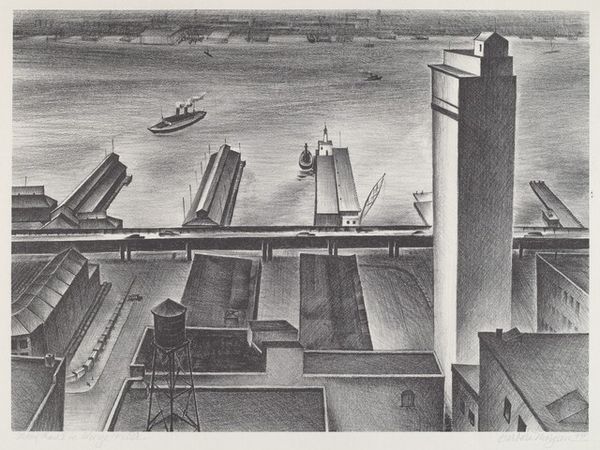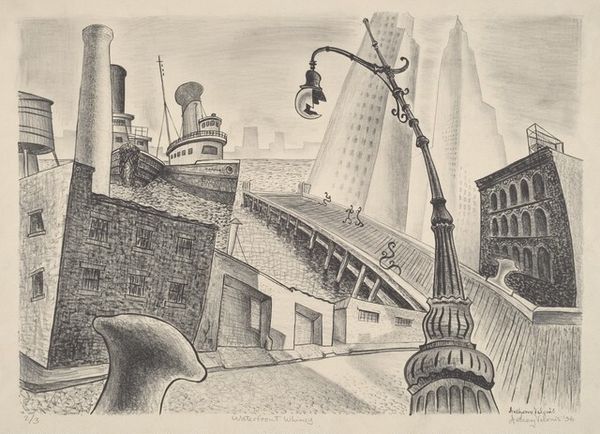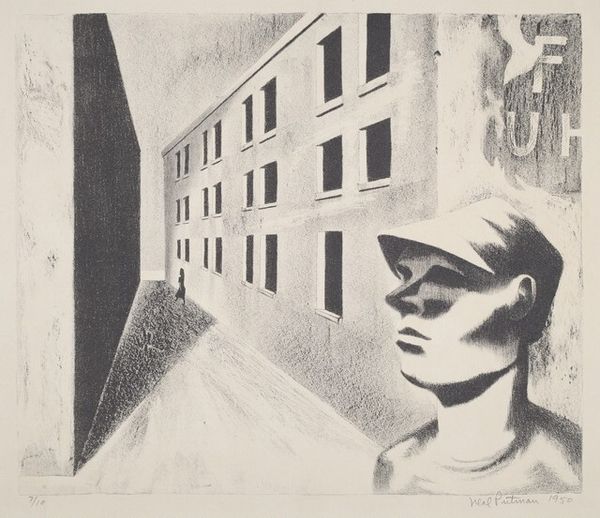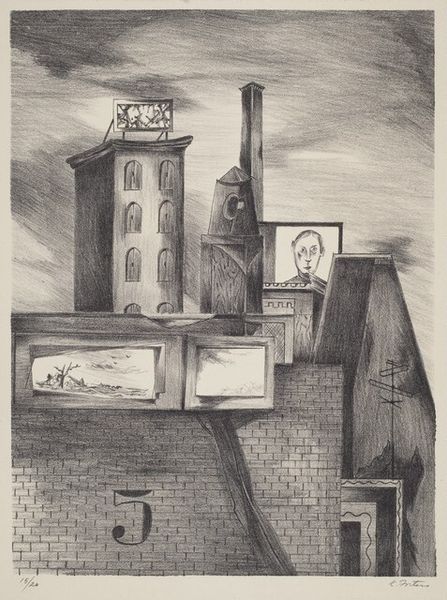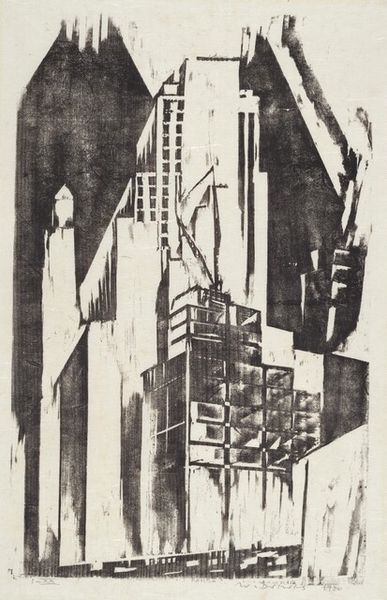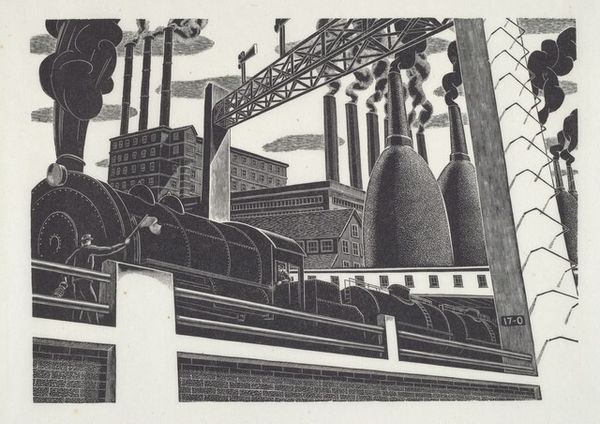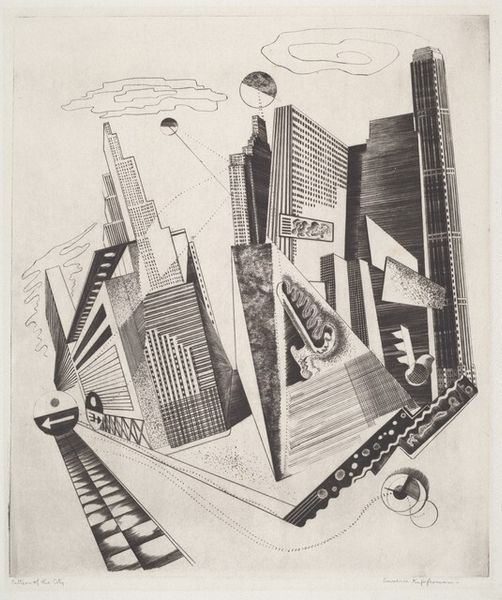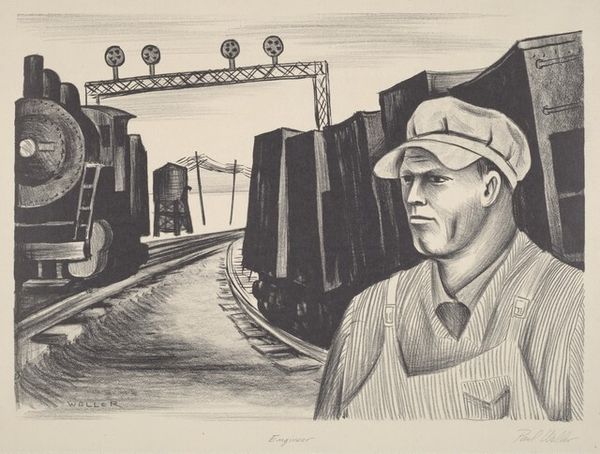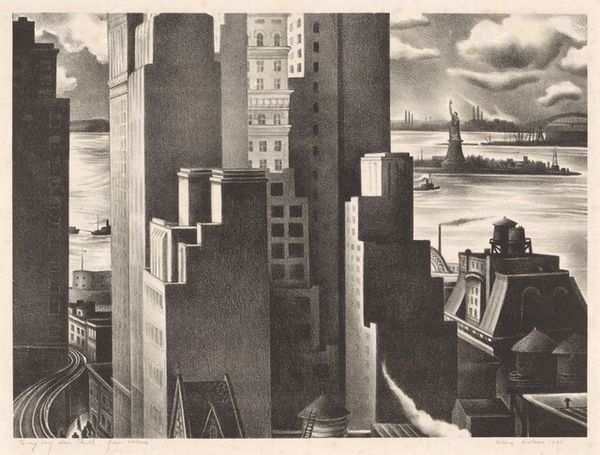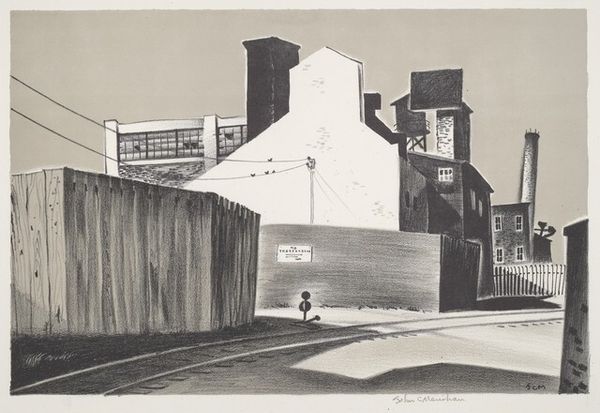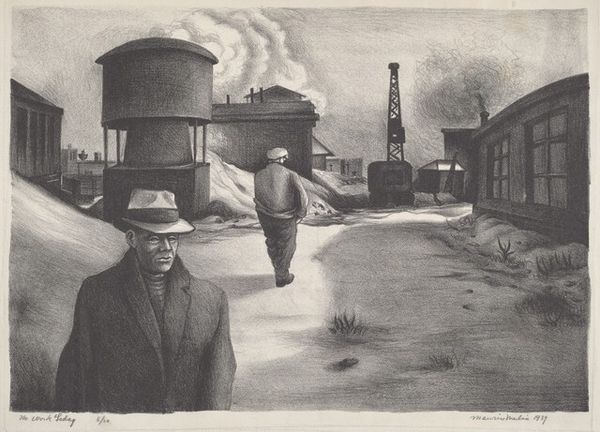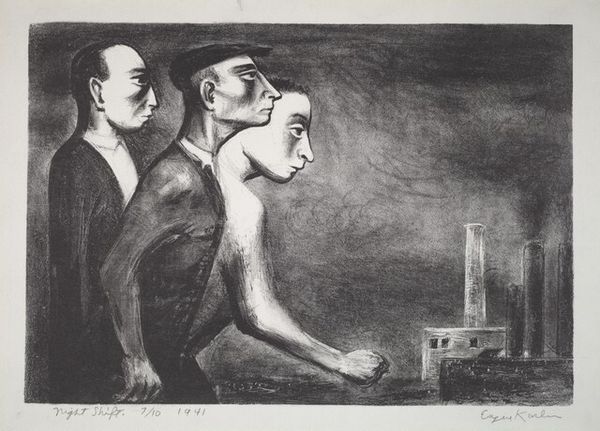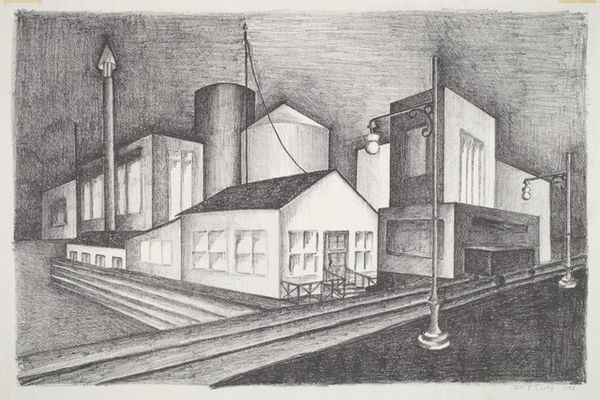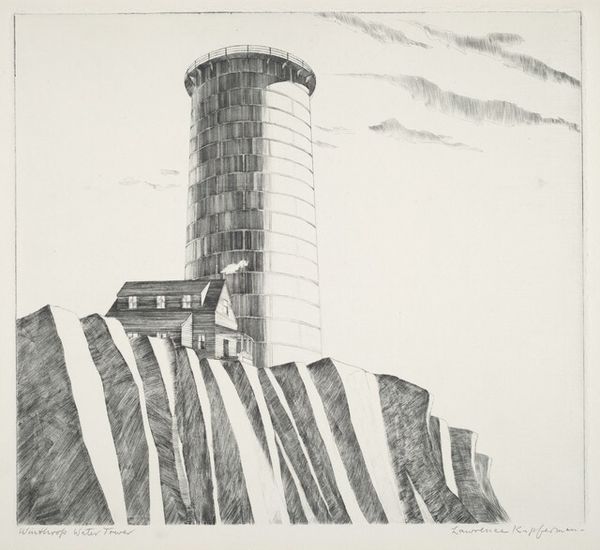
drawing, print, pencil
#
portrait
#
pencil drawn
#
drawing
# print
#
pencil sketch
#
charcoal drawing
#
pencil drawing
#
geometric
#
pencil
#
cityscape
#
portrait drawing
#
history-painting
#
realism
Dimensions: Image: 232 x 295 mm Sheet: 290 x 405 mm
Copyright: National Gallery of Art: CC0 1.0
Editor: This is Eugene Karlin’s “Factory Town” from 1940, a print made using pencil. The geometric precision, almost clinical, strikes me as so bleak, reflecting a kind of somber reality. What do you see in this piece that perhaps I’m missing? Curator: I see the weight of a particular historical moment. Think of 1940, the cusp of World War II. The geometric forms evoke both the order of industry and, perhaps unconsciously, the looming mechanization of conflict. Where do we see the influence of socio-political forces, Editor? Editor: Well, the figures, both the man in the foreground and the woman in the doorway, appear…trapped, maybe? It seems like they are victims of an inescapable system. It highlights the struggles of ordinary people within these large industrial structures. Curator: Precisely. How does Karlin depict the worker, and what commentary is made about their role in this society? It's vital to remember art's public role. Is this romanticizing labor, or offering a critique of it? Editor: I don’t think it’s romanticizing. It seems more like Karlin critiques the worker’s position as more of a cog within this giant industrial complex. The figures aren't glorified, but rendered as existing inside it. Curator: Good. Consider how art like this helped shape public discourse around labor rights and social justice during the mid-20th century. Artists frequently used their work to voice support for working classes. Editor: That's something I didn't fully consider before, the direct engagement with pressing social concerns through art. Curator: It shows the potent effect art can have in shaping public sentiment and provoking important conversations about societal issues. Thank you, Editor! Editor: Thank you! I see how "Factory Town" is less about aesthetics and more about serving as a reflection and call for social responsibility.
Comments
No comments
Be the first to comment and join the conversation on the ultimate creative platform.
